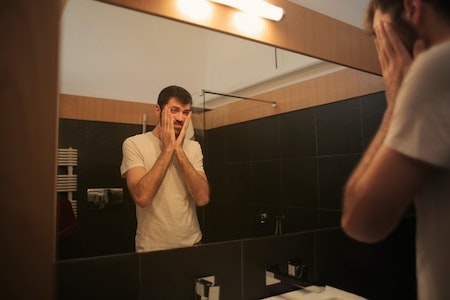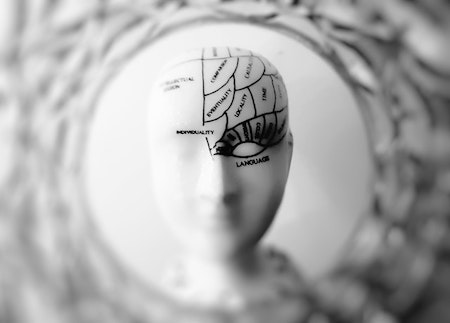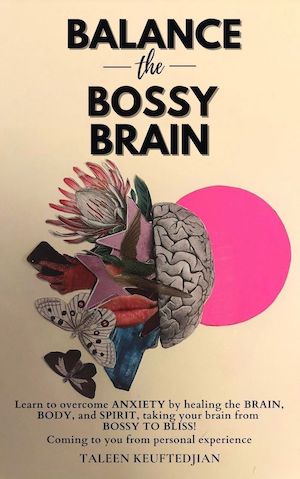Are you Overwhelmed by Everyday Tasks?
Modern-day living has become busier than ever with bustling cities, busy work schedules, emails, meetings, social engagements, social media, nonsensical news, and political drama. This sensory overload can leave you feeling drained and exhausted. Does this sound like you? Are you feeling overwhelmed by simple tasks? Are you finding it hard to concentrate on one thing at a time? If so, then you may be experiencing busy brain syndrome. This is when the brain is on such high alert that the body starts to look at this information overload as an actual threat. In response, your body triggers the “fight or flight” response to deal with the perceived threat.
Hmm ... When You Have So Much to Do You Do Nothing
So what do you do, when you have so much to do you do nothing. In this article, you will learn 7 ways to overcome feeling overwhelmed by every day tasks. But first, let’s understand what is happening in our brain that makes it so hard to concentrate.

Are you Feeling Overwhelmed By Simple Tasks?
People who are easily overwhelmed may experience an overabundance of stimulating information that takes away from the brain’s capacity to focus and learn new things. They also find it hard to focus on the present moment. It can also interfere with our ability to unwind, sleep, focus, and remember things. Sometimes it’s hard for the person to realize they’re suffering from an overwhelmed brain because they’re so caught up in sensory overload. This diminishes the person’s ability to multitask, catch mistakes, and react quickly.
People who are easily overwhelmed
- People with attention deficit or hyperactivity disorder ADD/ADHD
- People with anxiety or who excessively worry
- Creative minded people like innovators or artists
- People who multitask often
- People with a poor attention capacity and who are easily distracted
- People who are using electronics constantly throughout the day, such as obsessively checking social media, emails, news, and work-related stuff
- People who are prone to excessive stress or who don’t manage stress well
How Do I Know If My Brain is on Sensory Overload?
Do you find yourself excessively checking your social media accounts or emails? Do you find yourself easily distracted and forgetful of what you were doing before the distraction? Do you have a poor memory or find it hard to focus and stay focused? Are you feeling overwhelmed by simple tasks? Are you feeling overwhelmed as a mom? Are you overwhelmed by everyday tasks? Do you feel overwhelmed all the time? If so, the following section will teach you how to stop feeling overwhelmed at home.
So How do You Declutter When Overwhelmed?
- Declutter your living space or workspace
- Make a list to organize and prioritize your thoughts and goals
- Do yoga, breathing exercises, or meditate
- Listen to a podcast or read a book
- Consider a digital detox, which involves avoiding electronics, such as cell phones, iPads, laptops, computers, TVs, and any other devices
- Make a list of all the things that may be distracting you
- Consider Dopamine fasting or a dopamine diet to retrain your brain to stop associating pleasure with negative behaviors

Where Do I Start When Overwhelmed? Try These 7 Tips to Unwind and Focus
#1 Make a list to organize and prioritize your thoughts or goals.
Make a list to organize and prioritize your thoughts or goals. Tackle each task one at a time and avoid multitasking. After each task is accomplished, cross it off your list.
#2 Declutter your living space or workspace
Declutter your living space or workspace. Do a purge and get rid of the clutter in your life, which will help you get rid of the excess clutter in your brain. Go for simplicity, with lots of white and bright light in your space.
#3 Do yoga, breathing exercises, or meditate
Do yoga, breathing exercises, or meditate to encourage the relaxation response. These can help bring you back to the present moment, which is essential to a relaxed mind.
#4 Listen to a podcast or read a book
Listen to a podcast or read a book. Try to distract your mind from going in different directions by focusing all your attention on one thing. Make sure the topic is lighthearted and not challenging, to avoid any added stress.
#5 Try a digital detox
Digital detox involves avoiding electronics, such as cell phones, iPads, laptops, computers, TVs, and any other devices. If you do have electronics open, make sure to only have 1 or a few windows open at a time to encourage simplicity and avoid distraction. Avoid checking social media and personal emails throughout the day.a
#6 Make a list of all the things that may be distracting you daily
Make a list of all the things that may be distracting you daily. When you find yourself distracted by these things, make a conscious effort not to pay attention to them as much as possible. For example, social media is an addiction, which means the person will need to re-learn how to live without it before it becomes natural again. You may experience withdrawals, but the more you abstain from checking your social media account, the easier it will get. This isn’t to say that you should abstain completely. The goal would be to significantly reduce engagement time so that you are not negatively affected by it anymore.
#7 A dopamine fasting or a dopamine diet can be done to rebalance the brain's motivation-reward system
Dopamine fasting or a dopamine diet can be done to rebalance the brain’s motivation-reward system. The fast involves abstaining from all activities that involve pleasure, which include food, alcohol, sex, masturbation, social media, video games, TV, and talking. The fast can be done for one day every month. The only thing you should allow yourself to do during a dopamine fast is drink water, be in nature, do some light exercise, meditate, and write in a journal. The point is to cut out all over stimulating activities, so that your brain stops excessively pumping out dopamine, especially with negative behaviors.
Stop Going Through Life On Autopilot And Experience The Present Moment
So next time you are feeling overwhelmed by simple tasks, take a minute to reevaluate your situation. There’s a delicate balance between having an active brain that’s productive and an overwhelmed brain that’s limiting your attention span. Having an active brain throughout life can potentially decrease your chances of getting Alzheimer’s and dementia. It’s when the active brain turns into an obsessive brain that it becomes an issue. We spend 50% – 60% of our day on autopilot. Being more thought conscious and less future-focused will help bring you back to the present moment, thereby allowing you to process what’s going on around you.
Author Bio

Taleen Keuftedjian is a mental health and wellness enthusiast who coaches others on the importance of whole-body health, which incorporates brain, body, and spirit. She takes a relatable approach where she uses her own personal experiences to help motivate others to live a healthy, happy, anxiety-free life.
Check out my book!
A relatable guide to overcoming anxiety by finding the root cause, and bringing the brain, body, and spirit back into balance. Coming to you from personal experience!


~ Balance the Bossy Brain

Learn more about Habitat for Wellness


